Interview: Kip Cranna of SAN FRANCISCO OPERA CENTENNIAL at War Memorial Opera House - Part 1
San Francisco Opera’s Kip Cranna talks embracing opera’s vitality.
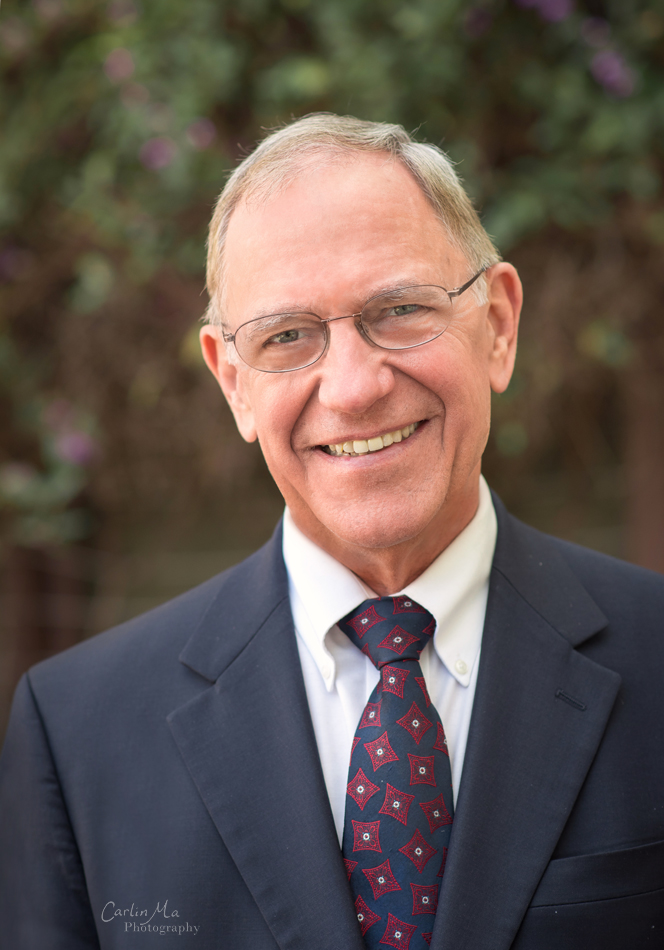
Photo: Carlin Ma
If the term "Mister Opera" were applied to San Francisco Opera Dramaturg Emeritus Kip Cranna, no one would object. Cranna's unique history with the company extends over a 40-year period, 30 of them as Director of Music Administration. The numerous honors that have been showered upon him include the San Francisco Opera Guild's Star of Excellence Award (2014); and the prestigious San Francisco Opera Medal (2008), the company's highest accolade, which he received in a ceremony during a simulcast of Lucia di Lammermoor at ATT Park, home of the San Francisco Giants.
Cranna's CV is so extensive, it's both impressive and daunting. Highlights include managing the company's commissions of 20+ new operas; serving as vocal adjudicator for, among others, the Metropolitan Opera National Council auditions; and conducting Bay Area choral groups. He is also a board member of Humanities West, a guest lecturer and teacher throughout Northern California, a writer of numerous articles on opera, and a walking encyclopedia of the company's history.
Who better, then, to discuss and share details of a 2022-2023 Centennial season that celebrates the history and accomplishments of this country's second largest opera organization?
Erica Miner: When did you first begin working with San Francisco Opera? How many years were you there, and what positions have you held?

Kip Cranna: I started in 1979 when I was still a graduate student at Stanford, working on my Ph.D. in Musicology. I heard from a friend who was on the board of the opera that there was an administrative position open, so I applied and got it. It was not on the musical side of things-Assistant Business Manager-but it was a foot in the door. I was doing things like contracts for radio and television, organizing tours, arranging office furniture. Simultaneously with finishing my Ph.D. in 1981, I moved to the musical side and became Assistant Musical Administrator and the following year Music Administrator, later given the loftier title Director of Music Administration. I did that for 30 years. It was a very hands-on administrative position in the musical side, doing master schedules for rehearsals and performances, managing overall for the orchestra, chorus, dancers, music staff. Super titles came into it soon after that. Pianos, libraries, royalties, commissions. The commissioning became a much more important aspect of my job as time went on. After 35 years of that I told David Gockley, who was my boss at the time, that maybe it was a good point to hang it up. He said, "Are you talking about retirement or a new job description?" So, he suggested I hang on to the musicology and dramaturgy aspects of my job and stay for a while longer in a position called Dramaturg. After 5 years that position was eliminated as an official staff position, but I'm still in it as Dramaturg Emeritus working with the company on a variety of projects doing with the musicological-dramaturgical side of things.
EM: So, a total of how many years?
KC: It was 40 years in 2019 that I worked on staff, 3 years beyond that as Dramaturg Emeritus. I'm called on quite often on a random basis to help with a variety of things: grant applications, website content. I have a regular Sunday afternoon participative Zoom "Aficionado," an event to keep our tried-and-true opera lovers happy with more information about opera.
EM: Your "Operas and Novels" sounds fascinating.
KC: That's an area that's always interested me, what I call "Page and Stage." I'm teaching a 6-week course currently for Dominican University in Marin County. I'm doing a concentrated version of that with opera librarian Michael Bragg. Various iconic novels that have been turned into operas. Manon Lescaut, Moby Dick, Little Prince.
EM: You've worked with every general director in the company's history except for founder Gaetano Merola. What was it like to work with them? What were some of the most memorable highlights of their tenures?
KC: That is a big topic. Each very different, of course, in their approach in terms of running the company, what interested them as far as repertoire, singers, directors and conductors. I was fortunate in that I enjoyed working with every single one of them.
EM: Kurt Herbert Adler was running the company when you joined?
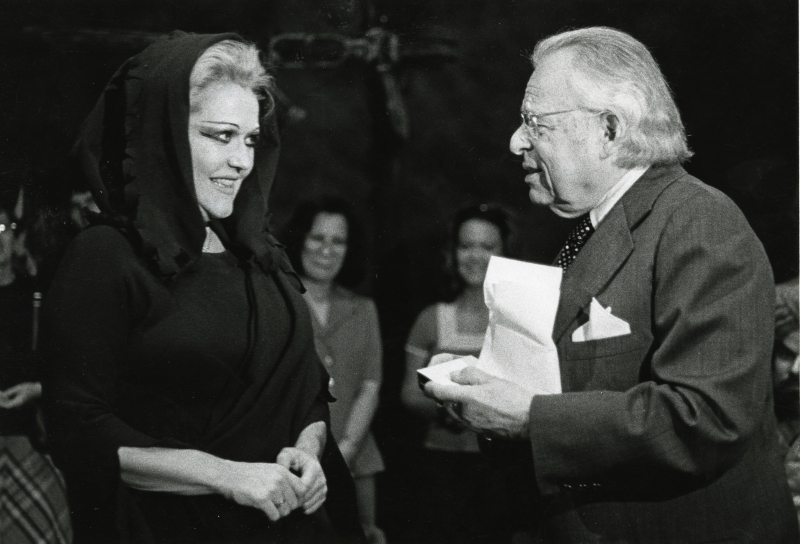
Photo: Caroline Crawford
KC: It was in the last 3 years of his tenure. He announced his retirement for 2 years hence just after I joined and ruled with an iron fist. You never argued with him. If you did, you may regret it. You couldn't do that kind of thing now. Human Resources would be after you in a moment if you created the hostile work environment that the opera was under Kurt Herbert Adler [Laughs]. But to his credit he made the company what it is, of international stature. He had good luck. He took chances that often worked out well. He had good relationships with famous artists like Beverly Sills and Luciano Pavarotti, Leontyne Price in particular. They liked coming to the company. He was very detail oriented, noticed anything and everything. Hands-on, not a delegator, wanted to make every decision, including the daily schedule for rehearsals. He had his hand on every aspect of the company. Fascinating man to work for. After he retired, he continued to guest conduct with the company, which was a big, odd sort of reversal of roles for me. Previously as his staff member I did whatever he told me to. As guest conductor I sometimes had to tell him no, whether he wanted an extra harp in the orchestra or an extra hour of orchestra rehearsal [Laughs].
EM: And his successor?
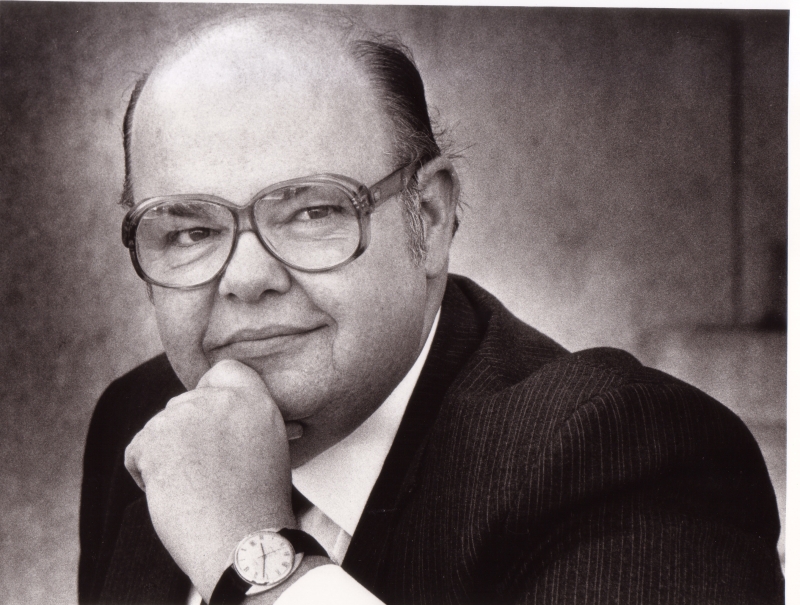
Photo: Courtesy of San Francisco Opera
KC: He hand-picked Terry McEwen, a Canadian executive from the record industry who had fostered the careers of many great artists including Pavarotti and Joan Sutherland. He brought those connections with him to San Francisco Opera. We had a lot of fun in the McEwen era. He was a bon vivant, wonderful raconteur, a fun person to work with. His biggest claim to fame was rescuing opening night in his 2nd season, 1983. Carlo Cossutta, the tenor singing Otello that night, the biggest social event of the year, fell ill. Plácido Domingo was persuaded to hop on a private jet-he was at the Met rehearsing-and got here for a very late curtain, almost 10:00, which ended around 2 a.m. An amazing, exciting evening. Overall, the biggest artistic triumph of Terry's tenure was the incredible Ring he produced in 1985, conducted by Edo De Waart and directed by Nikolaus Lehnhoff. A much-heralded production which unfortunately was not captured for commercial video but would have been great to have. There were so many tickets in demand that we did a simulcast to Davies Symphony Hall, which was rather new.
EM: Tell us about other Ring productions you've been involved with.
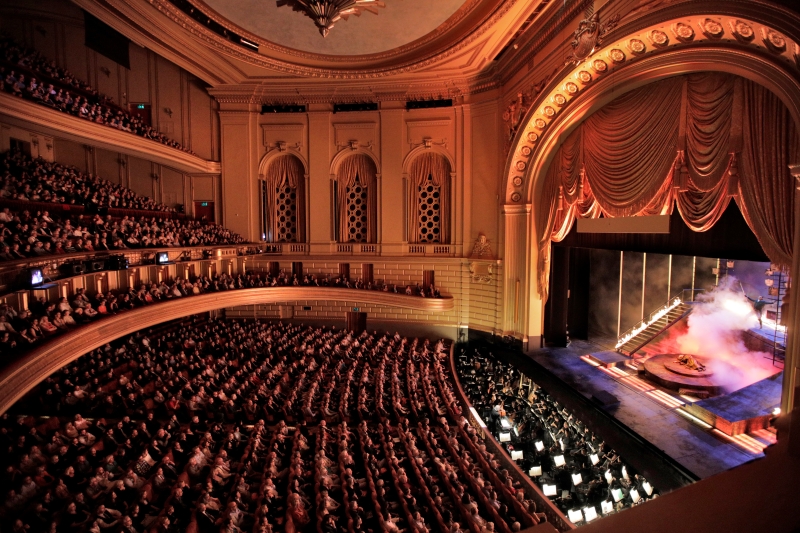
Photo: Cory Weaver
KC: I've been involved with 5 Rings with various directors. Only 2 basic physical productions. The original Lehnhoff, designed by John Conklin, and the Francesca Zambello Ring designed by Michael Yeargan. They both were very well done. I was glad to be associated with them. Putting on a Ring is an enormously taxing experience for everyone involved, from violinist to usher to box office to lowly administrator, all under a lot of pressure. Terry then retired rather early, his late 60s, because of his health. He had diabetes and was told by his doctor get stress out of his life. He did what he always said he would do, move to Honolulu, and lived his retirement years there. I visited him there.
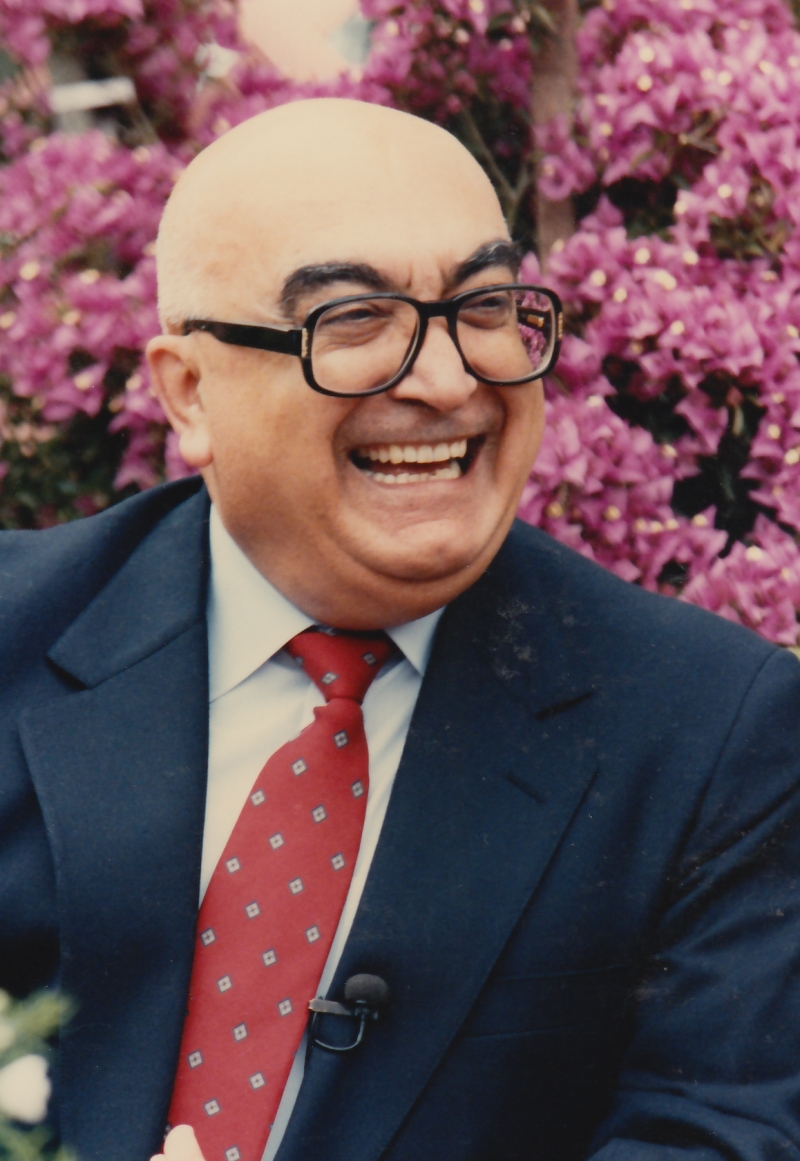
Photo: Courtesy San Francisco Opera
EM: Who succeeded him?
KC: Lotfi Mansouri, who had a long association with the company as a stage director. Immediately before he was general director of Canadian Opera, Toronto. I knew Lotfi well, having worked with him as a stage director. He had real ambitions about commissioning. When he took over the company, he pulled me aside and said, "I want to do three things, Kip. To commission an opera based on Dangerous Liaisons, an opera based on A Streetcar Named Desire, and an opera with a libretto by Terrence McNally." He did all three and set me to it. Dangerous Liaisons was set by the late Conrad Susa, a composer here at the Conservatory. Libretto by Philip Littell. Quite a successful opera, televised on Great Performances. For Streetcar we thrashed around trying to find the right composer. In those days, the early 90s, you listened to audio cassettes the composers' agents sent you. We weren't finding anything that really sparked Lotfi's interest. Then while driving the car I heard a piece by André Previn on the radio. I suggested Previn to Lotfi, he called him and that's how it came about, again with libretto by Philip Littell. It was quite an experience working with the Tennessee Williams estate on that production. It featured Renée Fleming as Blanche, which would have helped her to stardom if she wasn't already there.
EM: What year was that?
KC: 1998
EM: Fleming was still at her peak.
KC: She had done several things with us, the Countess in Figaro et al. I would say the beginning of her international stardom, reaching her career high point, more or less coincided with the telecast of Streetcar. At that time on our staff was a young guy named Jake Heggie who had been getting attention from artists with songs he was writing. Lotfi asked him if he would like to write an opera and offered to connect him with Terrence McNally. The two hit it off. Lotfi's idea for the year 2000 was an opera based on the French saying, "Plus ça change, plus c'est la même chose." The more things change, the more they stay the same. The idea that in every historical period people are nostalgic for the previous period. Terrence hated that idea. He did not want to delve back into previous periods, he wanted something more contemporary and suggested Dead Man Walking, which became one of the most successful operas of our time.
EM: And it all happened at San Francisco Opera.
KC: The big initiative of the Mansouri era was exploring the Russian repertoire. We did a very large number of Russian operas during Lotfi years. We had the American premiere of conductor Valery Gergiev, whose reputation is somewhat clouded right now because of his association with the Russian president. But in the 90s Gergiev came here often and brought artists from the Mariinsky Theatre in St. Petersburg.
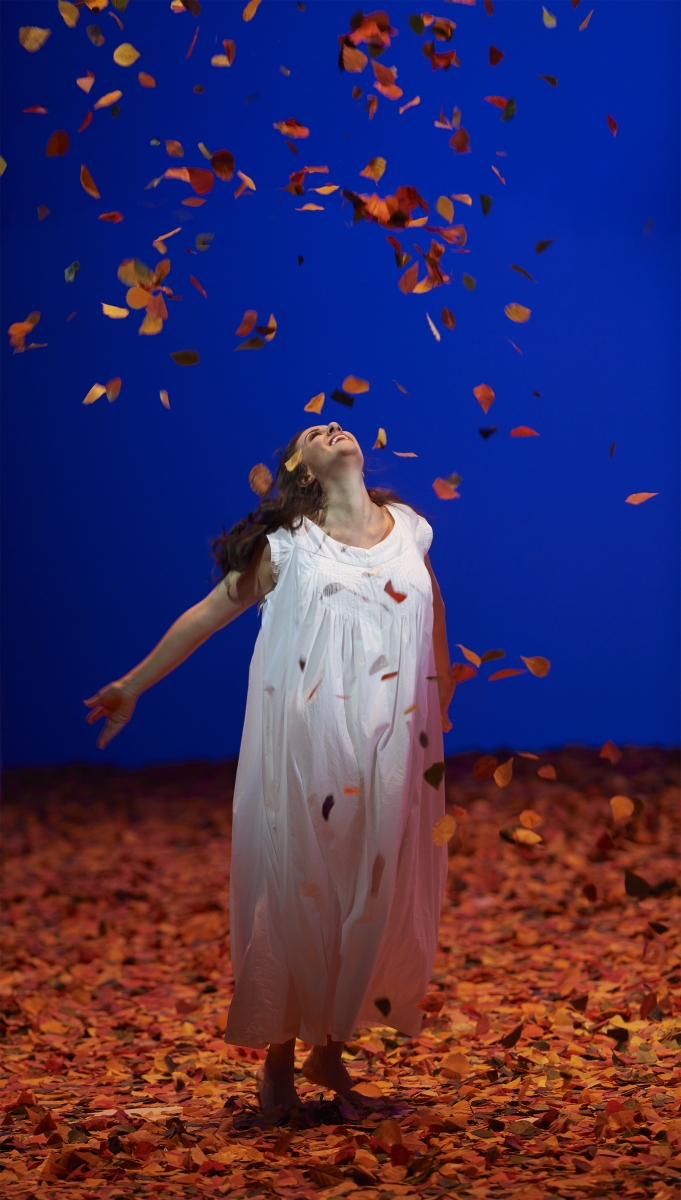
Photo: Michael Cooper
One of the highlights was 1991's Prokofiev War and Peace. We had a huge number of Russian artists here. The Soviet Union was falling apart, so none of these people wanted to come to rehearsal, they wanted to stay in their apartments and watch television [Laughs]. It was really an amazing time, we had Olga Borodina, a young singer named Anna Netrebko among others.
EM: And Lotfi was succeeded by?
KC: The first native born American to run the company, Pamela Rosenberg, who had gone to UC Berkeley but had spent her career in Germany. Immediately before coming here, she made quite a name for herself running Stuttgart Opera, putting on a lot of avant garde, cutting edge productions. Coming here her "brief" was to yank the company into the 21stcentury. 2001 was her first official season. She ran into tremendous roadblocks financially. In 2000 just before she took over the company, we had the dot.com bust in the Bay Area. The bottom really fell out of the company. Then we had 9/11 the first year of Pamela's tenure. Those fall months, September, October, November, nobody was coming to the opera, nobody wanted to go anywhere. Shell shocked. Nonetheless she persevered and did a lot of fascinating productions here.
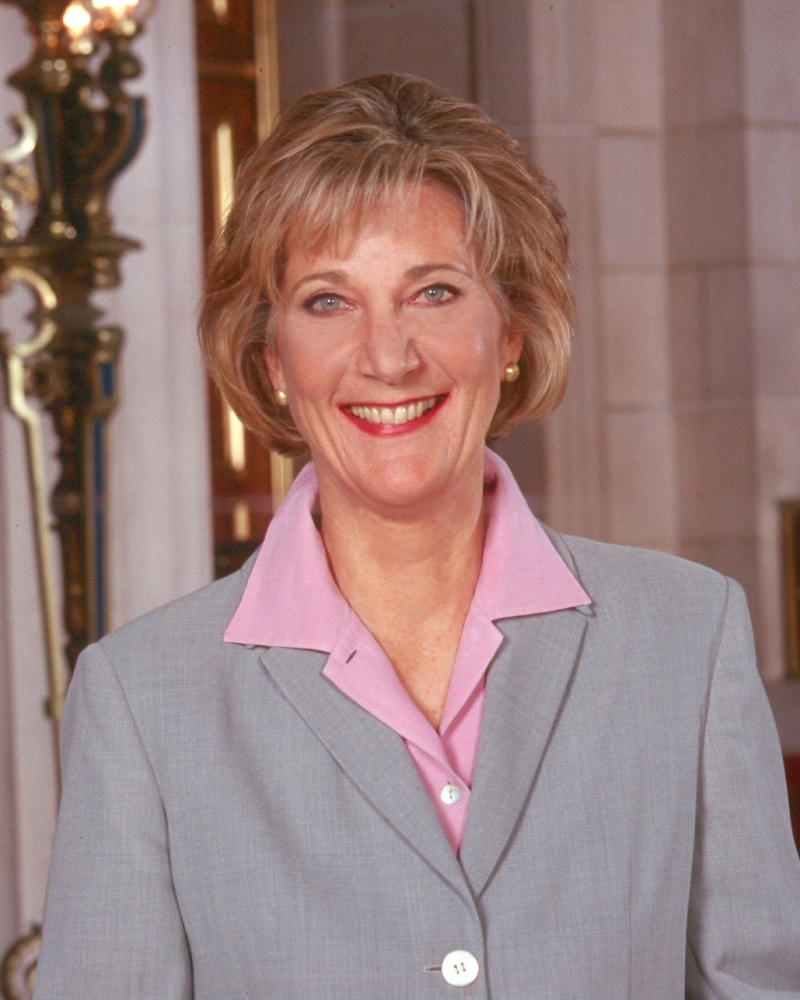
Photo: Courtesy San Francisco Opera
She had announced a series of initiatives that she wanted to follow through on. Berlioz project, Janáček project, various operas on Faust. In that connection we commissioned John Adams to write his Doctor Atomic about Robert Oppenheimer and the creation of the atomic bomb. Pamela didn't know John, but I did. We worked previously on his opera Death of Klinghoffer. Pamela saw Oppenheimer as kind of a Faustian figure. John liked the idea of Oppenheimer but was not attracted to the Faustian connection. He didn't see that. Nonetheless we went forward with Doctor Atomic which was quite successful in 2005. We did not have a subtitle as Pamela originally had suggested of "An American Faust."
EM: There was a certain "deal with the Devil" involvement there.
KC: Yes, and Oppenheimer himself expressed feelings like that. Not in a direct Faustian connection, but he quoted the Bhagavad Gita. He was fluent in many languages, including Sanskrit. There is a phrase in there, "I have become death, the destroyer of worlds." That ends up in the opera as the "Vishnu Chorus" expressing these thoughts, "Oh my God, what are we doing. What have we done?" Pamela left after 5 years, finding the financial difficulties of working in America more than she wanted to carry on with. The funding situation here is very different from Europe, like in Germany where you get a substantial portion of your budget from the federal government. Here our government sources tend to be around 1%, most of that coming from the City of San Francisco. She did not relish fundraising, which is something you must do all the time. You have to take people to lunch and persuade them about the exciting prospects you have in mind. She went to the Berlin Philharmonic. I'm still in touch with her. She's retired from that job, worked at the American Academy in Berlin, and now is working with childhood music education, particularly children of immigrants.
NEXT, PART 2: Opera as a living art form
Comments
Videos
